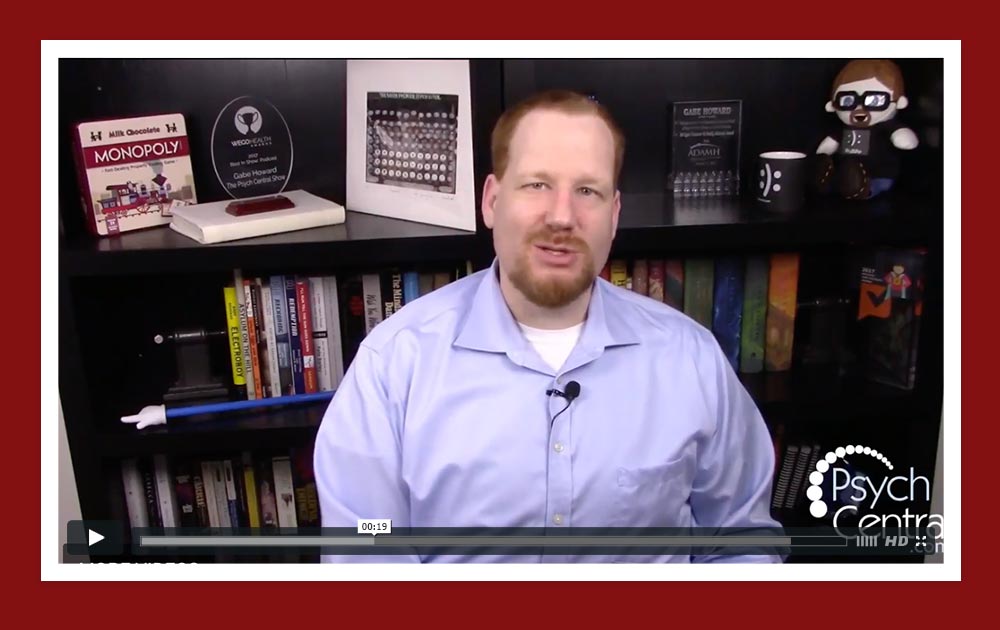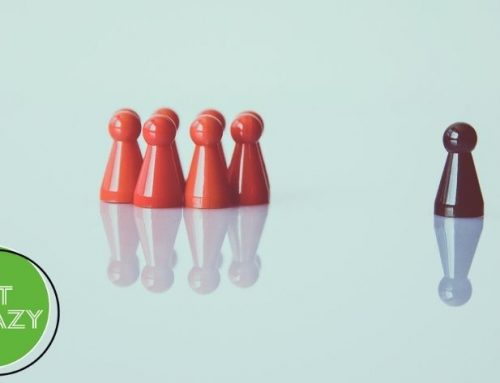Transcript For “No Apology, I’m Mentally Ill” Video
Q: Why do I have to apologize for things that I did when I was really symptomatic? I was sick, it’s not my fault!
People bring this up to me a lot. For some reason, they think if you have a symptom of an illness, that you have, I don’t know, immunity. I kind of look at it like this: if you’re driving your car and you pass out because of low blood sugar, and you ram into the back of somebody else’s car, the explanation for why you did that isn’t because you’re a bad person or even a bad driver. It’s because you were sick and that’s why you rammed the back of their car. But see here’s the thing — you still have to fix their car!
Living with mental illness is a bit like that. You know when I was first diagnosed I was like, “Oh, I have depression!” Or, “I have mania and that outburst was because I was sick and it’s not my fault!” It’s true it wasn’t my fault; it was a symptom of bipolar disorder. But then I learned that it wasn’t their fault either.
I think lots of people don’t want to apologize because they think that it’s not their fault, or they think that by apologizing it will somehow retroactively become their fault. The truth of the matter is that something happened. Something happened that has left you feeling bad and has left somebody else feeling bad. Somebody has to move the scale on that.
I suppose it would be nice if our loved ones would come up to us and say, “Hey, I forgive you for the thing that you did when you were sick.” But a lot of people don’t know that we did it when we were sick. So that’s probably never going to happen.
We know a lot about our illnesses. Part of educating people around us is letting them know that our illness made us do something wrong. And that we’re sorry that happened. And we’re sorry that it negatively affected somebody that we care about. This apology isn’t made up; we’re not lying. We’re sorry and we want to make it better.
But listen, the people around me don’t care that the reason I’m treating them poorly is because I’m sick. All they know is that they were treated poorly, and an apology from me went a long way. It helped me understand what I did, and it helped me avoid it. It helped me educate them about my illness, and it repaired my relationships.
Apologizing says the kind of person that you are. If people don’t accept it, that means that they don’t believe you or that they’re not ready. And that’s not on you. It would make me feel better if everybody took my apology. Took me at face value and forgave me instantly. But that’s not realistic, and they’re not required to do so. Becoming angry with them because they didn’t, that’s not okay. They may never forgive you. But that doesn’t mean you don’t owe them an apology.
My name is Gabe Howard and thank you for watching.
This video originally appeared on psychcentral.com as “Video: I Don’t Have to Apologize; I’m Mentally Ill!“








